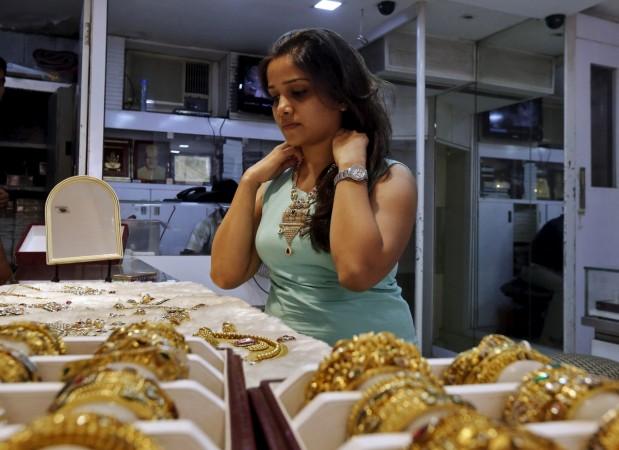
India's gold demand may rise in the second half of 2016 after falling to the lowest in seven years in the first half as beneficial monsoon rains will spur rural demand during the peak festive season, the World Gold Council said.
Two-thirds of demand in India, the world's second-biggest gold consumer, comes from villages, where jewellery is a traditional investment. Consumption of the yellow metal should rise as farmers reap the benefit of this year's monsoon and that should further support the global bullion price that is trading near the highest since March 2014.
"We anticipate gold demand to return to normalcy during the peak season of weddings and festivals closer to Diwali, supported by good monsoons that will positively impact rural demand," Somasundaram PR, managing director of the WGC's Indian operations, said on Thursday.
Rural demand has fallen in the past few quarters after the first back-to-back drought in nearly three decades squeezed farmers' earnings. The south Asian country is forecast to receive surplus rainfall during the June to September monsoon season.
The quarter ending in December typically accounts for about a third of India's gold sales since it includes the start of the wedding season and festivals like Dhanteras and Diwali, when buying gold is considered auspicious. Diwali falls in the last week of October in 2016.
Gold demand in the first half of 2016 fell 30 percent from a year ago to 247.4 tonnes, the lowest since 2009, due to a jewellers strike, higher prices and as government measures to bring transparency disturbed trading, Somasundaram said.
He estimates second half demand to rise to between 503 to 603 tonnes despite a 26 percent rally in local prices.
In the quarter ending in June, India's jewellery demand dropped 20 percent from a year ago, while investment demand fell 12 percent, the WGC said in a report released on Thursday.
As a result, the WGC lowered its 2016 demand forecast to between 750 to 850 tonnes, from earlier projections of 850 to 950 tonnes. In 2015 Indian demand stood at 864.3 tonnes.
Gold in India has been trading at a heavy discount to global prices due to rising supplies from unofficial channels, leading Indian refiners to suspend operations, Somasundaram said.
Supplies from unofficial channels could rise to up to 160 tonnes in 2016, from nearly 120 tonnes a year ago, he said.
In neighbouring China, the world's biggest consumer of the gold, demand dropped 14 percent in the second quarter to 183.7 tonnes, the WGC said in the report.













